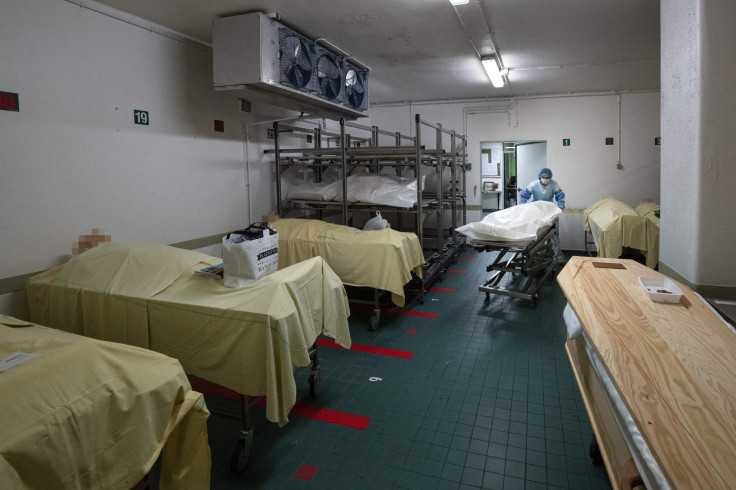
The remains of at least 1,500 undocumented immigrants who died on their journey to the U.S. are still waiting to be identified in morgues along the border, a new investigation by Noticias Telemundo shows.
In the investigation, the news organization examined 23 counties at the border in Texas, California, New Mexico and Arizona, and two counties in South Florida. They found that the remains of hundreds of undocumented migrants are still awaiting identification in morgues, laboratories, or cemeteries to be identified and repatriated, though this figure is far from exact, the outlet clarified.
The U.S.-Mexico border is considered the world's deadliest land migration route by the International Organization of Migration, with many dying in stretches of desert where it is complicated to recover bodies. The United Nations estimates the number of migrants who died crossing from Mexico into the U.S. between 2014 and 2024 at 4,208 according to a report published in March, which, however, warns the real number may be much higher.
Recovering these bodies can be an extremely daunting task, one that is made even more difficult by obstacles often placed by local authorities. When bodies are eventually recovered from the border, as the U.S. has no federal laws that determine how to handle the bodies of dead migrants, they are often subject to a particular county's bureaucracy and logistics, which can vary widely from state to state and county to county.
Some counties keep track of their unidentified dead, but do not differentiate which of them were migrants, such as El Paso, Texas and Broward, Florida. Others know how many migrants died in their area, but not how many of their bodies still hold, like in New Mexico. Others, such as those in Arizona, have highly detailed data, like where the deceased are coming from and how many they hold.
The lack of information is not the only obstacle families face when trying to recover their loved one's bodies. Often, even when an identification is made, repatriation can be extremely complicated due to costs of up to $6,000 or a family's travel arrangements to claim the remains.
Diplomatic relations between the U.S. and any given country of origin also play a significant role. For example, a Nicaraguan family told Telemundo that even when their loved one had been identified, the Nicaraguan consulate in Houston did not notify them.
Given these difficulties, a humanitarian project within the Forensic Anthropology Center at Texas State University, called the Operation Identification, is working to identify and repatriate unidentified human remain along or in close proximity to the South Texas border through community outreach, scientific analysis, advocacy, and collaboration with governmental and non-governmental organizations.
But while they work to continue identifying John and Jane Does, they are also speaking out on the injustices of placing added difficulties that prevent families reuniting with their loved ones.
"Identifying a body doesn't carry the same meaning if the family can't have their loved one back," Molly Kaplan, a research assistant at Operation Identification told Telemundo. "It's like having another death, having to keep waiting."
Their offices currently hold about 300 boxes with unidentified remains. Using DNA samples, tattoos, or photos of belongings sent to consulates to establish identities, the group has identified 140 people in the last decade.
© 2024 Latin Times. All rights reserved. Do not reproduce without permission.







